Critical Thinking Reading Non-Fiction Worksheets for Ages 3-7
6 filtered results
-
From - To
Welcome to our "Critical Thinking Reading Non-Fiction Worksheets" designed for children ages 3-7! These engaging worksheets help young learners develop essential critical thinking skills while exploring fascinating non-fiction topics. Each activity encourages children to analyze information, make connections, and draw conclusions, fostering a love for reading and discovery. With colorful illustrations and age-appropriate content, our worksheets promote cognitive development and encourage curiosity about the world around them. Perfect for both classroom settings and at-home learning, our resources empower educators and parents to support early literacy in a fun and interactive way. Explore our collection and inspire young minds today!
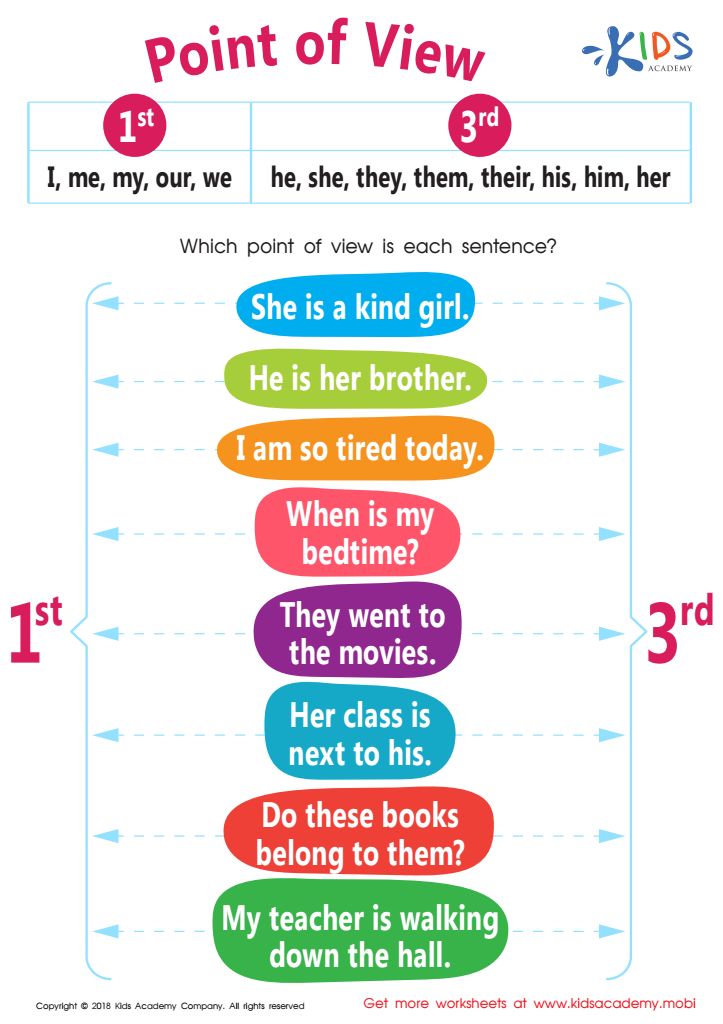

Point of View Worksheet
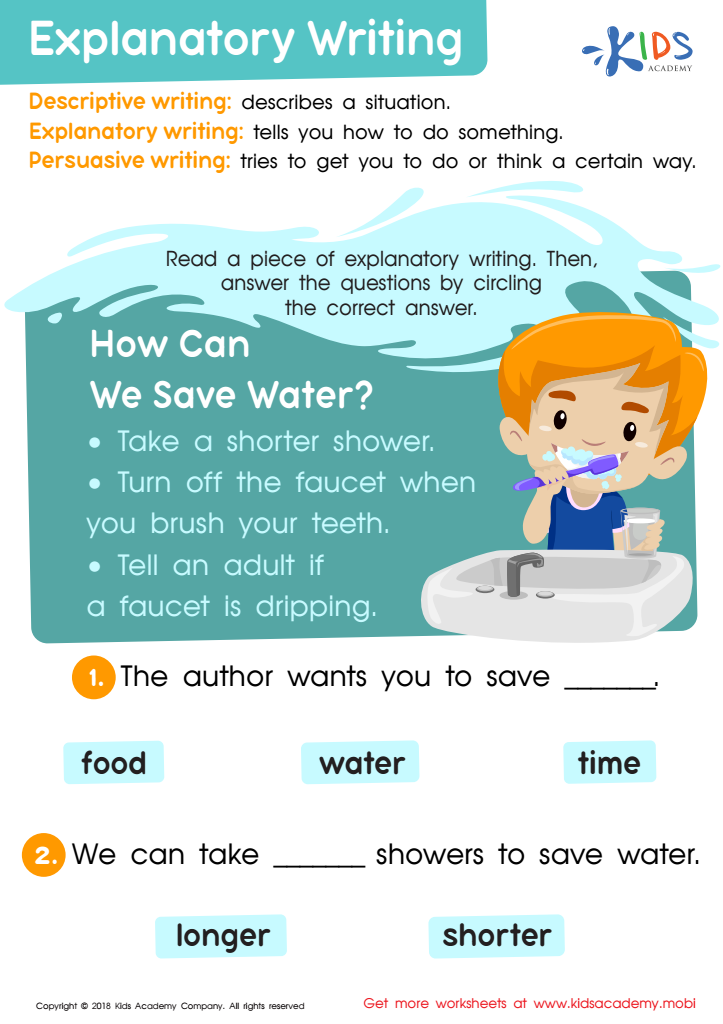

Explanatory Writing Worksheet
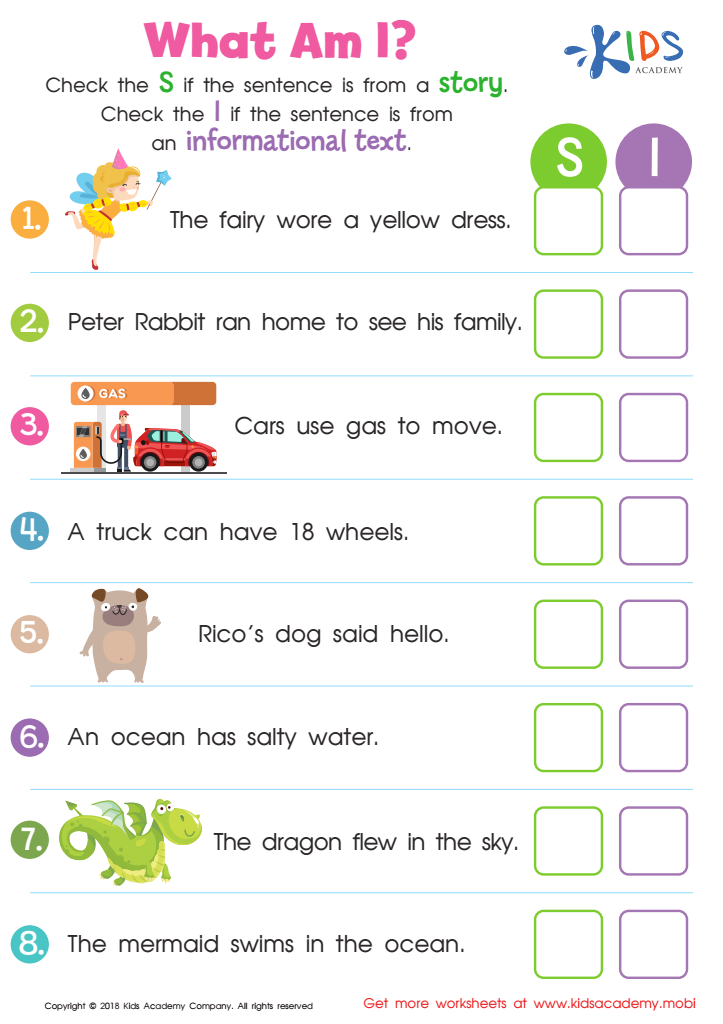

What Am I? Worksheet
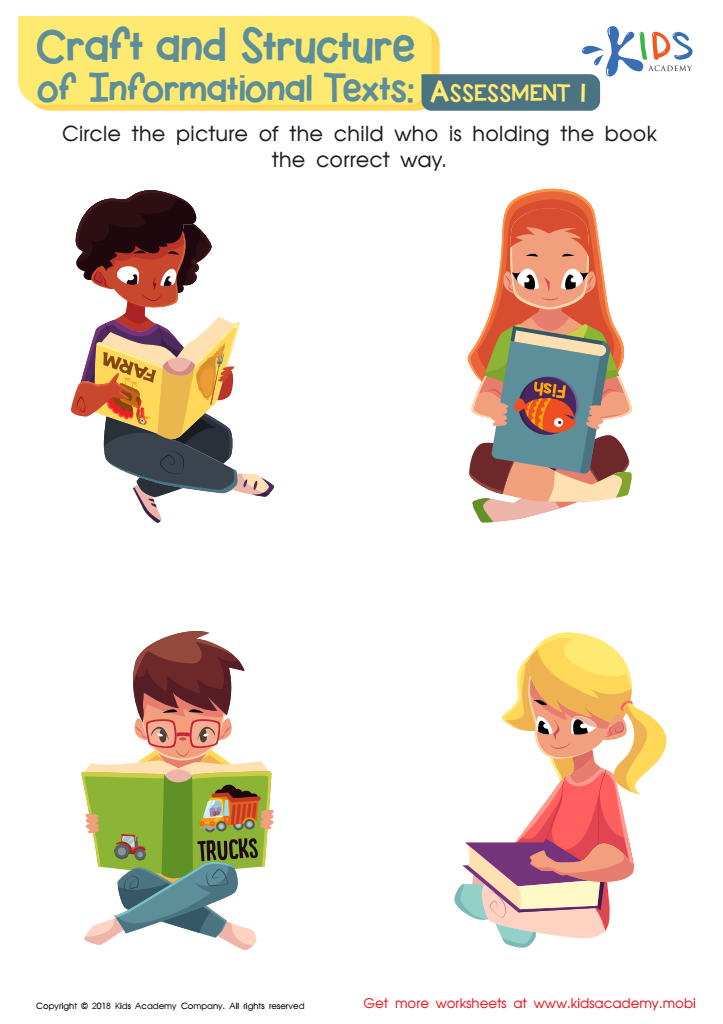

Craft and Structure of Informational Texts: Assessment 1 Worksheet
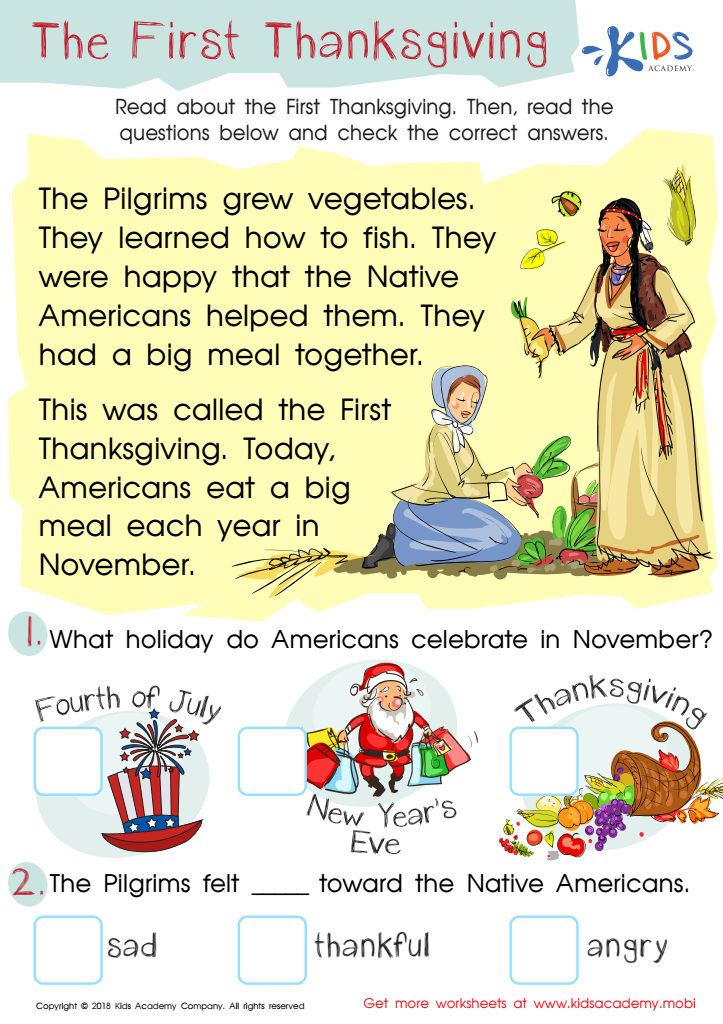

Assessment: First Thanksgiving Worksheet
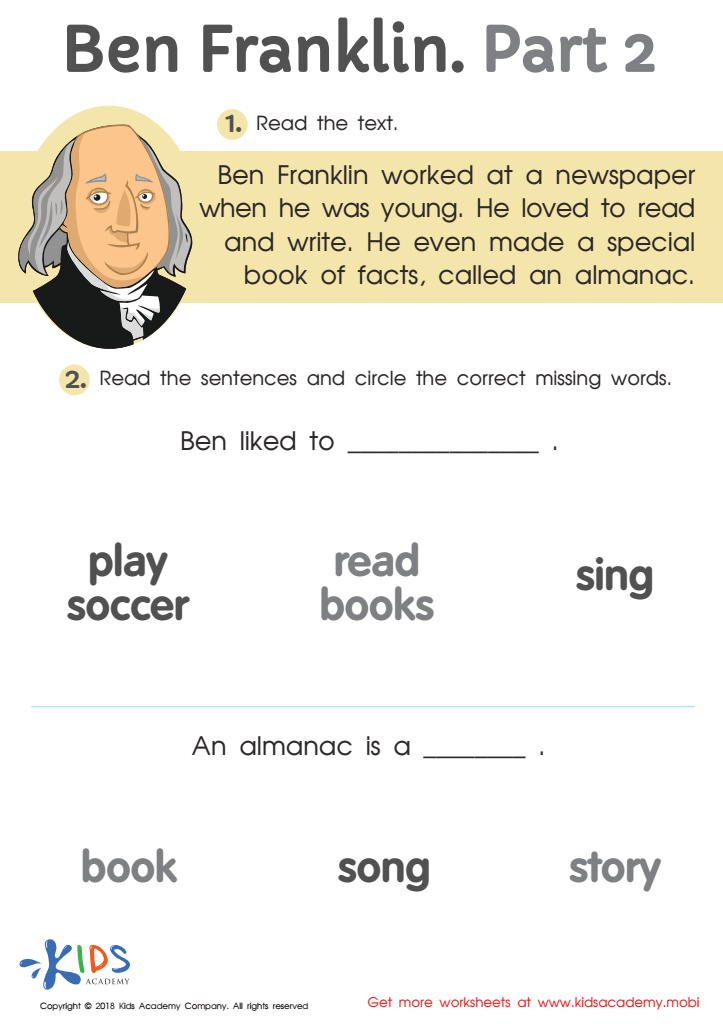

Ben Franklin Part 2 Worksheet
Critical Thinking Reading Non-Fiction for ages 3-7 is vital for children’s cognitive development and future success. Engaging with non-fiction texts nurtures curiosity by introducing young learners to real-world concepts, ideas, and cultures. It encourages questions, exploration, and a desire to learn, ultimately fostering a habit of inquiry that is crucial as they grow.
By cultivating critical thinking skills early on, parents and teachers empower children to analyze information, evaluate sources, and discern fact from opinion. This foundational skill is essential in an age where media literacy is crucial. Moreover, non-fiction reading introduces specialized vocabulary and concepts, enriching children's language skills and comprehension.
Furthermore, engaging different forms of non-fiction (such as biographies, science, or history books) sparks interest and broadens perspectives, promoting empathy and understanding of diversity.
When adults prioritize critical thinking through non-fiction reading, they are not just enhancing literacy skills but also preparing children to navigate and contribute meaningfully in a complex world. Thus, nurturing critical thinking through non-fiction is an investment in a child’s academic, social, and emotional growth—laying a strong foundation for lifelong learning and informed citizenship.
 Assign to My Students
Assign to My Students
















